Posted by Elena del Valle on February 21, 2017
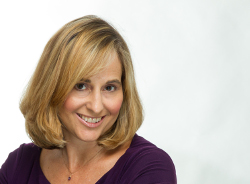
Julie Cottineau, CEO, BrandTwist
Photo: BrandTwist
A podcast interview with Julie Cottineau, CEO, BrandTwist, is available in the Podcast Section of Hispanic Marketing & Public Relations, HispanicMPR.com. During the podcast, she discusses how to twist your brand and grow your business with Elena del Valle, host of the HispanicMPR.com podcast.
Julie is also founder of BrandTwist and Brand School Online, a branding program for entrepreneurs, non profits and small businesses. Prior to founding her company Julie spent five years as vice president of Brand for Virgin North America and worked closely with Sir Richard Branson and at Interbrand and Grey global.
She is the author of Twist: How Fresh Perspectives Build Breakthrough Brands published in 2016. She has been an adjunct professor of marketing at Cornell and Columbia universities. Her own life has been filled with twists which have taken her from her home town of Boston to the University of Pennsylvania, and then from New York to Paris, and back again. She lives in the Hudson Valley with her French husband and two wonderful children.
Listeners of the HispanicMPR.com podcast have the opportunity to apply (subject to approval) for a complimentary one hour Brand Health Check personalized strategy session with insight on “how your brand can work harder to grow your business, a $350 value,” courtesy of BrandTwist.
To listen to the interview, scroll down until you see “Podcast” on the right hand side, then select “HMPR Julie Cottineau” and click on the play button below or download the MP3 file to your iPod or MP3 player to listen on the go, in your car or at home from the RSS feed. Some software will not allow flash, which may be necessary for the play button and podcast player. If that is your case, you will need to download the file to play it. To download it, click on the arrow of the recording you wish to copy and save it to disk. The podcast will remain listed in the February 2017 section of the podcast archive.
Posted by Elena del Valle on February 17, 2017
Job Title: Director of Communications and Outreach
Company Name: Harvard University
Location: Cambridge, Massachusetts, United States 02138
Harvard University
School/Unit
Harvard Kennedy School
Sub-Unit
————
Job Function
Communications
Time Status
Full-time
Department
Wiener Center
Salary Grade
057
Union
00 – Non Union, Exempt or Temporary
Duties & Responsibilities
The Malcolm Click to read the entire ad for Director of Communications and Outreach, Harvard University
Posted by Elena del Valle on February 8, 2017
By Jay Gronlund,
President, The Pathfinder Group
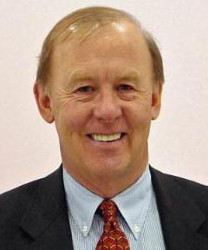
Jay Gronlund, president, The Pathfinder Group
Photo: The Pathfinder Group
Technology has transformed our world into a data obsessive circus where information is unbelievably accessible, connectivity is constant, and unpredictable events always surprise and engulf us. Call this extreme clutter and volatility. With so much information and multi-tasking surrounding us, it has become a challenge to restore simplicity, clarity and focus in our communications. These excessive conditions provide the main impetus for the re-emergence of storytelling for inspiring, engaging and connecting to others.
Read the entire The Power of Storytelling for Brand Marketing and Communications
Posted by Elena del Valle on February 6, 2017
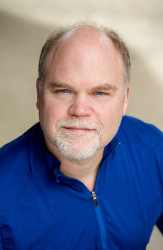
Michael Welp, Ph.D., co-founder, White Men As Full Diversity Partners
Photo: White Men As Full Diversity Partners
A podcast interview with Michael Welp, Ph.D., co-founder, White Men As Full Diversity Partners, is available in the Podcast Section of Hispanic Marketing & Public Relations, HispanicMPR.com. During the podcast, he discusses how workplace discrimination equals a $64 billion loss with Elena del Valle, host of the HispanicMPR.com podcast.
Michael is the author of Four Days to Change. In 1990, he journeyed to post-Apartheid South Africa, where he took a proactive role with non-profit Outward Bound while leading team-building projects within a dozen South African corporations. For over two decades, Michael has worked extensively with Fortune 500 company leadership to build a culture where diversity flourishes and inclusion is the order of the day.
To listen to the interview, scroll down until you see “Podcast” on the right hand side, then select “HMPR Michael Welp, PhD” and click on the play button below or download the MP3 file to your iPod or MP3 player to listen on the go, in your car or at home from the RSS feed. Some software will not allow flash, which may be necessary for the play button and podcast player. If that is your case, you will need to download the file to play it. To download it, click on the arrow of the recording you wish to copy and save it to disk. The podcast will remain listed in the February 2017 section of the podcast archive.
Posted by Elena del Valle on February 2, 2017
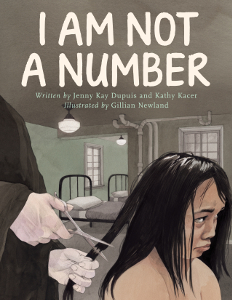
I Am Not a Number
Photos: Second Story Press
Jenny Kay Dupuis, Ed.D.’s interest in her family’s past and her commitment to teaching about Indigenous issues through literature drew her to co-write her first children’s book. It took her and Kathy Kacer three years to write I Am Not a Number (Second Story Press, $18.95), the true and personal story of Irene Couchie Dupuis, her grandmother, who was taken from her Nipissing First Nation’s family and community at a young age to live in a residential school in the late 1920s in Canada. They wrote the easy to read lovingly illustrated book for school-age children (ages seven and up) to learn about the legacy of the Indian Residential School System (known as boarding schools in the United States). According to the author, it has also appealed to “educators (Grades 2-12), librarians, families, and community organizations interested in reading stories about true history, and supporting children and youth to develop critical literacy skills to engage in important, meaningful discussions about the injustices that have and are currently occurring to Indigenous peoples.” In it, they share her grandmother’s story, including the hardships and verbal and corporal punishment she and other children endured at the hands of the nuns and within the system.
“When I was growing up, we didn’t talk much about the history and injustices in school programming,” Dupuis said by email when asked about the Nipissing First Nation. “I learned about my culture and community values, like having respect for myself and others, while working a part-time job (as a youth) at a local restaurant called the Teepee Café owned by Dot Beaucage-Kennedy. It was a place where everyone gathered, including storytellers, Elders/knowledge keepers, grandmothers/grandfathers, artists (traditional/contemporary), language speakers, and families. Times have changed. We are now seeing these opportunities expand into the school systems. I’m really proud of the opportunities that are emerging, especially for children and youth, that place an emphasis on historical/contemporary realities, culture, traditions, and values, including efforts to revitalize the Ojibwe language and culture.”
The 32-page hardcover book was published in 2016. Color illustrated by Gillian Newland the book also includes several black and white family photos. The people who were involved in the abuse were never punished, nor did they apologize for the wrongdoings in her granny’s case, Dupuis explained.
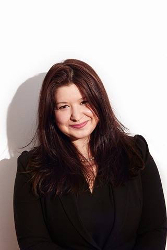
Jenny Kay Dupuis, Ed.D., co-author, I Am Not a Number
When asked why she wrote the book Dupuis replied, “Listening to the stories of my family and community history led me to write I Am Not a Number. My granny shared with me her story at a time when I felt that she wanted to share her truth. I held onto her story for years, waiting for the right time to share it. While I was working in the field of Indigenous education, I found there weren’t any children’s picture books that focused on the Residential School System through the lens of an Indigenous family. So I wanted to reach out to young people through storytelling and literature to ensure they hear true stories about the legacy of forced assimilation; where Indigenous children were taken from their families/home communities and sent to residential schools.
In addition, I also wanted to use literature as a means to encourage educators, families, and community groups to begin to facilitate deep conversations, with young people and each other, about the legislation and policies that have impacted (and still impact) Indigenous peoples. I’m really pleased at the response. So far, educators, community groups, and families have been in contact via social media sharing how they have used the book since its release. For instance, Luke Bramer, a performing arts teacher used the book to inspire his junior level/ freshman high school students to learn about the residential school system and create a puppet theatre performance, using breathing puppets to retell my granny’s story. Other teachers have been using activities like ‘role on the wall’ to introduce the topic of residential schools and begin to discuss topics like genocide, the impacts of colonialism, oppression, assimilation, etc. Families have read the book with their young children, going through a ‘picture walk’ to stimulate interest. Additionally, community organizations, like in Hamilton ON (Canada), are in the midst of hosting (grassroots-led) book launches and readings that also feature youth artwork and other learning inspired by the book I Am Not a Number.”
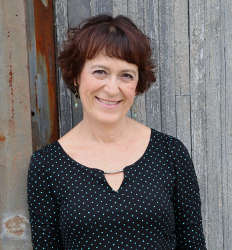
Kathy Kacer, co-author, I Am Not a Number
The Nipissing First Nation lives on the shores of Lake Nipissing in Northern Ontario, Canada. There is a registered band membership of approximately 2,500 persons with about 1,000 residing on reserve. Dupuis is of Anishinaabe and Ojibway ancestry and a member of Nipissing First Nation. The Toronto resident is an educator, researcher, artist, and speaker who works full-time supporting the advancement of Indigenous education.
Kacer is known for her children’s books about the Holocaust, including The Secret of Gabi’s Dresser and The Magician of Auschwitz. A former psychologist, she now travels the globe speaking to children and adults about her books. Newland works in watercolor, ink, and pencils. She finds most of her inspiration to draw outside of her studio, and can sometimes be found sketching fellow customers at a coffee shop. She is the illustrator of The Magician of Auschwitz among other books. All three women live in Toronto.
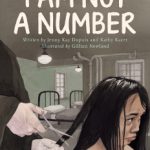
Click to buy I Am Not a Number
















